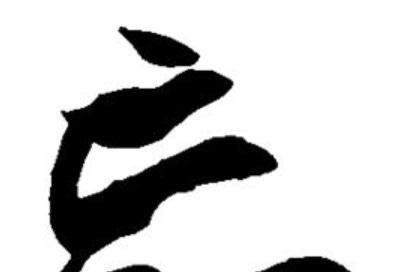Yesterday I wrote about microamnesia: how individuals change their views and then forget their previous stance.
I have an hour or less to write these daily posts, so what you see here is raw and not well thought out.
Today I realized that my last examples of microamnesia were arguably really examples of what I call mesoamnesia - medium amnesia - when whole peoples forget who they were.
The case of mesoamnesia that I’m most familiar with is that of the postwar Koreas. BR Myers is a rare, rogue Koreanologist willing to mention the topic (without using my neologism, of course).
The standard narrative of Korea under Japanese rule between 1910 and 1945 is that Koreans were passionate nationalists desperate to rid themselves of the Solar yoke.
But Myers points out in The Cleanest Race (p. 29) that
By the end of the 1920s [less than twenty years after the Japanese takeover!], the upper and middle classes in Seoul were speaking Japanese in their own homes.
The child of a parent who grew up in what is now North Korea during this period told me something to the effect of, was my parent Korean [culturally]? I vaguely recall a story in which said parent had to learn how to read and write Korean after the war - after the end of Japanese rule.
From a Ruined Empire: Letters--Japan, China, Korea 1945-46 reproduces a letter dated September 12, 1945, by Warren Tsuneishi, a Japanese-American soldier in postwar Seoul who reports that a Japanese-language newspaper is still published by an entirely Korean staff for an entirely Korean readership because “many of the people either find it impossible or too difficult to read the numerous Korean-language newspapers.”
That would soon change. Tsuneishi reported “an official ban on spoken Japanese.”
The eradication of Japanese from the Koreas is an untold story.
Here’s just a glimpse of it: As late as the Korean War, just a few years after liberation, North Korean soldiers were still accidentally referring to American planes using Japanese terminology. The effect of years of education in Japanese could not be entirely suppressed overnight.
Even the ‘pure Korean’ of both Koreas has a lot of hidden Japanese influence - a topic for another day.
A topic that is taboo because of Korean mesoamnesia. Because Koreans must forget the full extent of Japanese influence and only remember the dark side that only a few of them - such as Kim Il Sung - resisted with all their might. Say what you will about the founder of the Kim dynasty, but I can’t imagine a case for him ever being influenced by the Japanese. (Yet even Kim’s own brother was an interpreter for the Japanese according to Myers on p. 32 of The Cleanest Race!)
I suspect postwar Europe had its own version of mesoamnesia. On p. 35 of The Cleanest Race, Myers writes,
The North Koreans were by no means alone in reinventing their past […] The historian Tony Judt has written that myths of a “France of resisters or a Poland of victims” played an important role in helping Europe set aside its past and move on.
Mesoamnesia doesn’t have to be so dramatic. And it’s not unique to former colonies or occupied nations.
America is perhaps the land of mesoamnesia. I am not White and can only see White American society from the outside, so take this with a grain or boulder of (white?) salt. Seems to me that most White Americans have a major case of mesoamnesia. They are vaguely aware of their ancestry but if not for their surnames (and sometimes not even that), their nongenetic ties with the Old Country (assuming they only have one - many don’t) are nonexistent. They are unlike the Jews, the mnemoethnos, the Memory People, who remember who they are no matter how secular they are. Yes, of course there are examples of White Americans who go total Euro and Jewish Americans who totally de-J, but this is a short piece that can’t deal with outliers.
Nonwhites in America also have mesoamnesia, albeit a milder case because being visibly different helps to remember. In my own family, I am the last person who knows Japanese. We are still Japanese in terms of food and religion, but pretty much everything else is gone.
I am not advocating the maintenance of ‘purity’, the restoration of ‘essence’, etc. Mesoamnesia is a one-way street. I’ll go into where it can go next time.
The Chinese character for 忘 ‘to forget’, a compound of 亡 ‘to die’ atop 心 ‘heart’, in the hand of Wang Xizhi, China’s greatest calligrapher.




